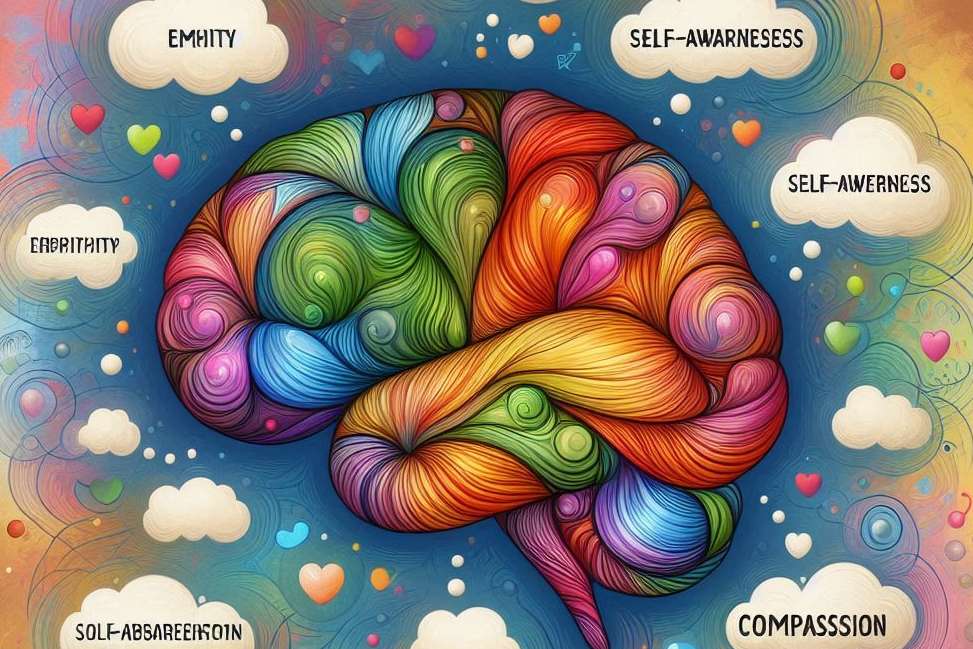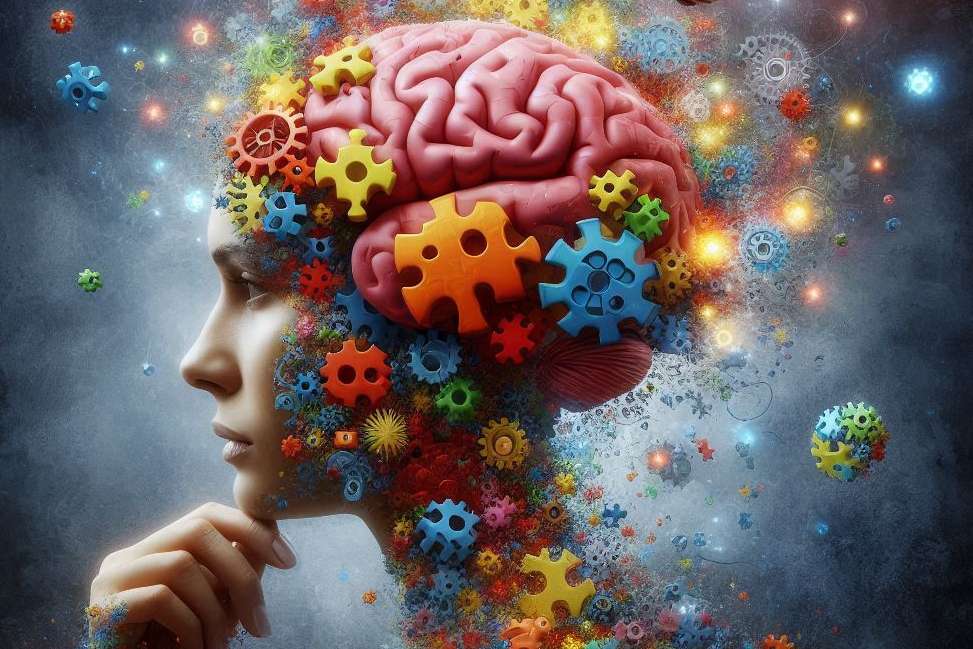Introduction
5 must-have skills in the era of AI that will empower you to excel in any field. We live in a time where artificial intelligence is dominating and shaping the world. It’s transforming how we work, live, and interact. As AI continues to grow, it creates new opportunities and challenges. To stay relevant and competitive, we need to develop these specific skills which is relevant through out the humankind history and after mastering these skill you don’t need to worry about anything. These skills will give us the power to adapt and thrive in this new era.
In this article, we’ll explore five essential skills for the AI age: Emotional Intelligence (EI), Learning Agility, Adaptability, Strategic Thinking, and Complex Problem Solving. By mastering these skills, you’ll be able to stand out and succeed in a world increasingly influenced by AI.
Table of Contents
Emotional Intelligence (EI)
What is Emotional Intelligence?
Emotional Intelligence, also known as Emotional Quotient (EQ), is the ability to understand and manage your own emotions as well as recognize and influence the emotions of others. Unlike AI, which excels at data and processes, EI is a uniquely human skill that helps us connect with each other.


Why is EI Important in the AI Era?
- Building Strong Relationships: EI helps you form and maintain healthy relationships, which are crucial for teamwork and collaboration. Human connections are essential for a positive work environment.
- Effective Leadership: Leaders with high EI can inspire and motivate their teams, handle stress, and resolve conflicts. As AI changes job roles and structures, emotionally intelligent leaders will guide their teams through these transitions.
- Outstanding Customer Service: While many customer service tasks are automated, empathy and understanding remain key. EI allows you to connect with customers on a personal level, ensuring their needs are met.
- Managing Change: EI helps you cope with the emotional aspects of change, such as stress and uncertainty. This is valuable in an era where technology constantly evolves.
How to Develop EI
To improve your EI, focus on these areas:
- Self-Awareness: Reflect on your emotions and understand how they affect your thoughts and actions.
- Self-Regulation: Learn to manage your emotions, especially in stressful situations.
- Motivation: Cultivate a positive attitude and an inner drive to achieve your goals.
- Empathy: Practice understanding others’ feelings and perspectives.
- Social Skills: Improve your communication, teamwork, and conflict resolution abilities.
Learning Agility
What is Learning Agility?
Learning Agility is the ability to quickly learn new skills and knowledge and apply them in different situations. It’s about being open to new experiences and adapting to change. In the fast-paced world learning agility is crucial.


Why Learning Agility Matters
- Keeping Up with Technology: AI and related technologies are advancing rapidly. Those who can quickly learn and adapt will stay ahead.
- Career Flexibility: The job market is changing. Learning agility helps you switch roles and industries as needed, making you more resilient.
- Fostering Innovation: Agile learners are more likely to try new things and take risks, leading to innovative solutions.
- Better Problem Solving: The ability to learn from experiences and apply that knowledge to new challenges makes you a better problem solver.
How to Develop Learning Agility
To become more agile in learning, try these tips:
- Adopt a Growth Mindset: Believe that you can develop your abilities through effort and practice.
- Seek Feedback: Regularly ask for feedback and use it to improve.
- Stay Curious: Always look for new information and experiences.
- Experiment and Reflect: Try new approaches and reflect on what you learn.
- Network with Diverse People: Interact with people from different backgrounds to gain new insights.
Adaptability
What is Adaptability?
Adaptability is the ability to adjust to new conditions and changes quickly and effectively. In a world where AI is driving rapid transformation, being adaptable is essential.


The Role of Adaptability in the AI Age
- Embracing Technological Change: As technology evolves, being able to adapt to new tools and processes is crucial.
- Career Resilience: Adaptable individuals can shift across roles and industries, making them more resilient to job market changes.
- Continuous Learning: Adaptability goes hand-in-hand with lifelong learning. The ability to learn new skills is vital as technology advances.
- Building Resilience: Adaptable people handle challenges and uncertainties better, maintaining productivity and well-being.
How to Build Adaptability
To become more adaptable, try these strategies:
- Welcome Change: See change as an opportunity rather than a threat.
- Be Flexible: Stay open to new ideas and approaches.
- Enhance Problem-Solving Skills: Improve your ability to think critically and find solutions.
- Maintain Health: A healthy body and mind can better cope with stress and change.
- Learn from Experience: Expose yourself to different environments and situations.
Strategic Thinking
What is Strategic Thinking?
Strategic Thinking is the ability to plan for the future, set long-term goals, and develop strategies to achieve them. It involves seeing the big picture and anticipating future trends and challenges. In this era, strategic thinking is key for making informed decisions and guiding organizations to success.


Why Strategic Thinking is Important
- Future-Proofing Careers and Businesses: Strategic thinking helps you anticipate and prepare for technological impact.
- Informed Decision-Making: It enables you to analyze complex systems and foresee potential outcomes.
- Driving Innovation: Strategic thinkers can identify opportunities for innovation and create plans to capitalize on them.
- Effective Leadership: Leaders with strong strategic thinking skills can guide their teams through uncertainty and change.
How to Enhance Strategic Thinking
To develop strategic thinking skills, focus on these areas:
- Understand Industry Trends: Stay informed about trends and advancements in your industry.
- Analyze Data: Learn to interpret and analyze data for informed decisions.
- Think Long-Term: Set long-term goals and create actionable plans to achieve them.
- Plan for Different Scenarios: Consider various scenarios and plan for different futures.
- Collaborate and Communicate: Work with others to gather diverse perspectives and communicate your vision.
Complex Problem Solving
What is Complex Problem Solving?
Complex Problem Solving is the ability to understand and address intricate problems. It involves analytical thinking, creativity, and seeing connections between different elements. In the AI era, where challenges can be multifaceted, this skill is invaluable.


The Role of Complex Problem Solving in the AI Age
- Addressing New Challenges: As AI introduces new technologies, complex problem solving helps you tackle novel challenges.
- Driving Innovation: Solving complex problems leads to innovative solutions, keeping businesses competitive.
- Improving Efficiency: Effective problem solvers can identify inefficiencies and develop strategies to improve processes.
- Better Decision-Making: Complex problem solvers can analyze various factors and make informed decisions.
How to Develop Complex Problem Solving Skills
To enhance your complex problem-solving abilities, try these practices:
- Improve Analytical Thinking: Break down problems and analyze their components.
- Boost Creativity: Cultivate creativity through brainstorming and exploring new ideas.
- Practice Systems Thinking: Understand how different elements of a system interact.
- Engage in Continuous Learning: Continuously seek new knowledge and skills.
- Collaborate with Others: Work with diverse teams to gain different perspectives.
Conclusion
In conclusion, thriving in the AI era requires more than technical skills. Emotional Intelligence, Learning Agility, Adaptability, Strategic Thinking, and Complex Problem Solving are essential for staying relevant and successful. By developing these skills, you can navigate the complexities of the AI age, seize new opportunities, and maintain a competitive edge. Embrace these must-have skills to excel in a world shaped by artificial intelligence.




